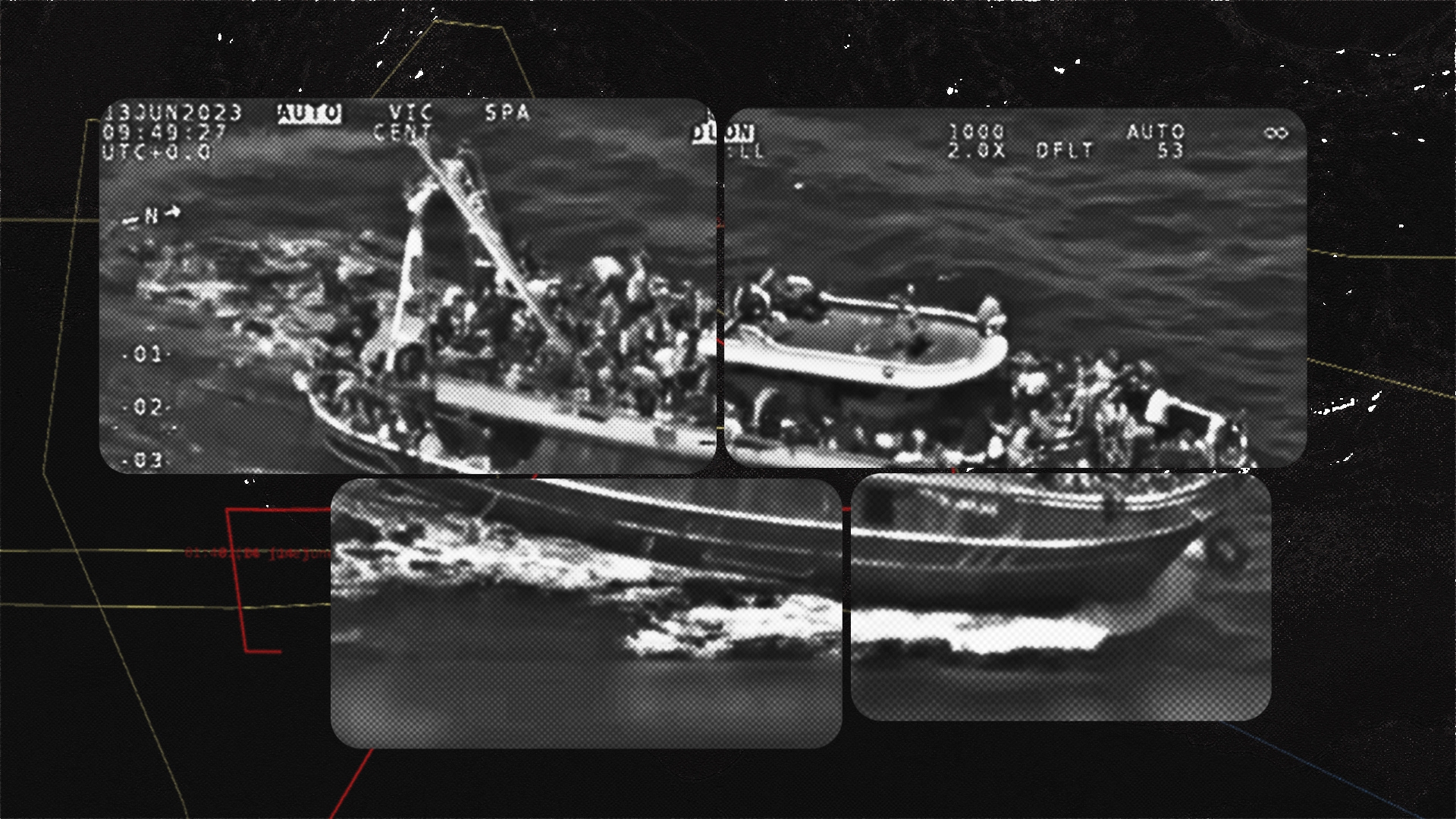wearesolomon.com | 6 July 2023
Under the unwatchful eye of the authorities’ deactivated cameras: dying in the darkest depths of the Mediterranean
A collaborative investigation by Solomon, Forensis, The Guardian and ARD presents the most complete tracing, to date, of the course that the fishing vessel Adriana took until it ultimately sank, causing over 600 people to drown − while under the supervision of Greek and European authorities. A document reveals that according to Frontex recommendations, the Coast Guard vessel was obligated to record the operation on video.
In the early hours of June 14, the state-of-the-art cameras of the Coast Guard vessel ΠΠΛΣ-920 were off.
The deadliest shipwreck within the Greek Search and Rescue Zone, one of the largest the Mediterranean has ever seen, was reportedly not visually detected.
Only hours before, aerial photos of the overloaded fishing vessel were taken. Nearby tankers recorded videos before they were ordered to leave the scene. There were satellite images that captured its movement.
But the exact circumstances in which the Adriana capsized off Pylos, killing more than 600 people, remain unclear three weeks on.
In affidavits and interviews, some of the 104 survivors attributed the sinking of the fishing vessel to an attempt by the Hellenic Coast Guard to tow it to Italian waters.
The Coast Guard emphasizes that it saved human lives, and maintains that the fishing vessel overturned due to a disturbance by the passengers.
Solomon, in a joint investigation with the research group Forensis, The Guardian and German public broadcaster ARD reveals: the Coast Guard vessel ΠΠΛΣ-920, the only vessel present at the time the Adriana capsized, was obligated to “document its operation by video-recording” in accordance with a 2021 Frontex document which recommends that the Greek authorities record their operations continually.
If this had been done, today there would be answers to the questions that the victims’ families are still asking.
By midday on June 13, the Greek and Italian authorities and Frontex (the European Border and Coast Guard Agency), were aware of the overloaded fishing vessel, which had been sailing aimlessly for four days in the central Mediterranean – its only means of navigation was a compass and the position of the sun.
The activist network Alarm Phone had also relayed to the authorities the desperate SOS of some 750 men, women, and children — mostly from Pakistan, Egypt and Syria — who, lacking potable water, were using their shoelaces to lower containers into the sea: “They are urgently asking for help”.
ΠΠΛΣ-920, the Coast Guard vessel which received the order to depart from the port of Souda, Crete to assist, has been the pride of the Coast Guard since 2021. European funding covered 90% of its cost, and it is one of the best-equipped vessels available in Greece.
And it could not be in better hands: earlier this year, in March, its captain was awarded for “his valuable contribution to the protection of maritime borders and human life at sea.”

